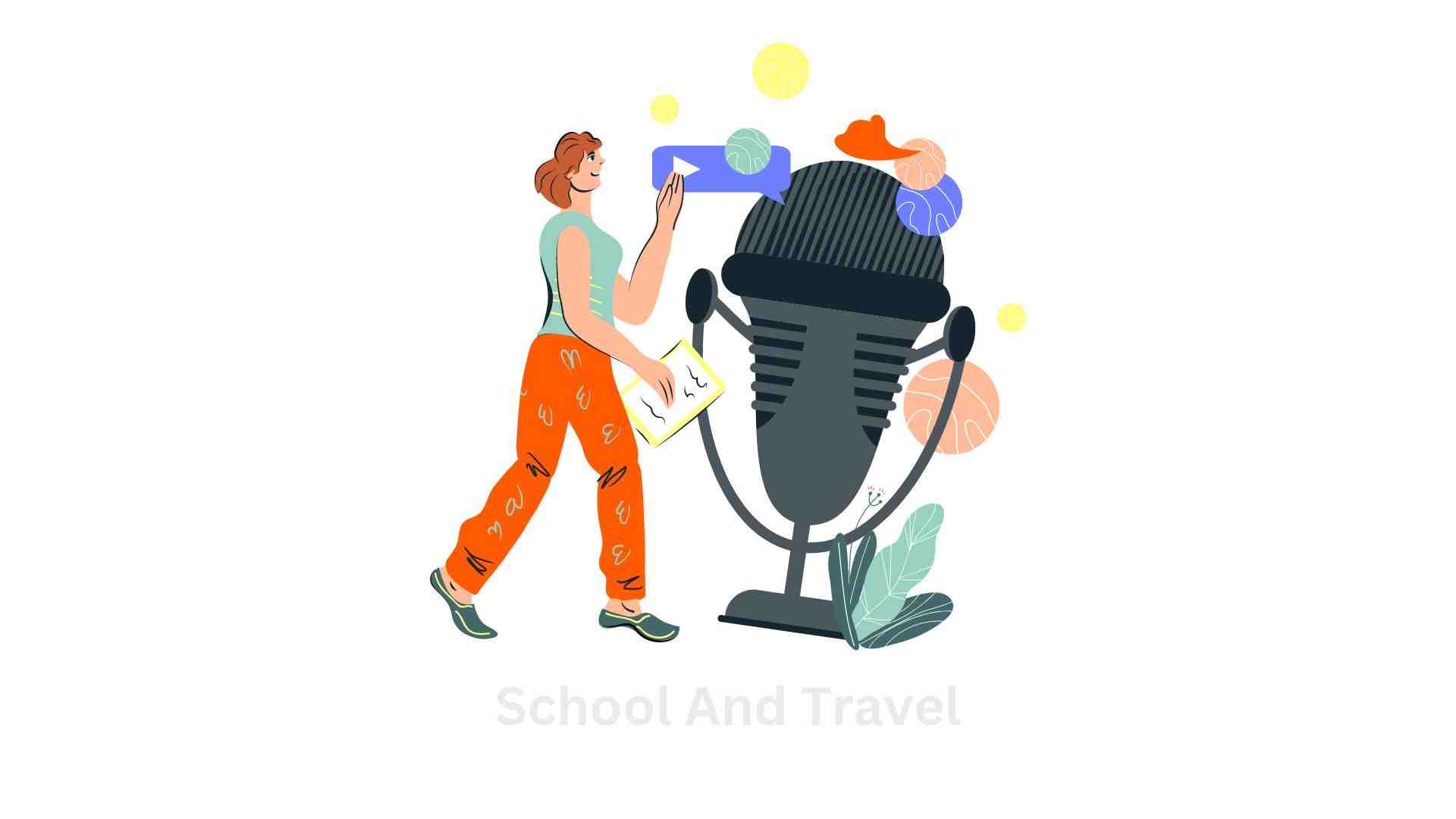Mass communication helps people and groups understand each other better by bridging the gaps between them.
It spreads important knowledge, affects social change, and brings people together to take action. So, this article looks at why mass communication is important and what it brings to society.
What is Mass Communication?
Mass communication refers to the process of exchanging information on a large scale to a wide range of people.
The term is usually associated with various forms of media, including newspapers, magazines, television, radio, and more recently, the Internet.
It differs from other types of communication primarily in scale; whereas interpersonal communication might occur between individuals or small groups, mass communication is designed to reach a large, often diverse, audience.
11+ Different Types of Mass Communication
Mass communication encompasses various forms and channels through which information, ideas, or messages are shared with a large audience. Here are some of the main types:
1. Print Media:
This is one of the oldest forms and includes newspapers, magazines, brochures, and newsletters. These materials are often aimed at a general audience and can cover a wide range of topics.
2. Broadcast Media:
This includes television and radio. Television can offer a variety of programming including news, documentaries, and entertainment, while radio offers music, talk shows, and news bulletins.
3. Digital Media:
This is a growing field that includes websites, blogs, and social media platforms like Facebook, Twitter, and Instagram. Digital media can be interactive, allowing the audience to engage directly with the content.
4. Film and Cinema:
While primarily seen as a form of entertainment, films can also serve as a powerful tool for mass communication, often tackling social issues, historical events, or cultural narratives.
5. Outdoor Media:
This includes billboards, banners, posters, and other forms of public advertising. They’re generally less detailed than other types of media but are excellent for capturing attention quickly.
6. Public Relations:
Though not a medium in itself, PR uses various types of mass communication to shape public perception of organizations, individuals, or issues.
Press releases, media advisories, and PR campaigns utilize print, broadcast, and digital media to convey their messages.
7. Books:
Like print media, books can be a form of mass communication, especially if they are mass-produced and widely distributed. They can serve educational, informational, or entertainment purposes.
8. Podcasts:
These are digital audio files that are available for download. Podcasts can cover an array of subjects like news, education, storytelling, and more.
9. SMS and Email:
While traditionally not included under mass communication, bulk SMS and mass emails are increasingly being used for marketing and public announcements, reaching a large audience quickly.
10. Video Games:
Though primarily for entertainment, video games are becoming a new form of mass communication, offering interactive experiences that can include social commentary or educational elements.
11. Music:
Songs and music videos can communicate messages to a large audience and often have cultural, social, or political significance.
12. Telecommunication Networks:
These facilitate various other forms of mass communication by providing the infrastructure for TV, radio, and internet services.
Divisions Of Mass Communication
1. Channels/Medium
The medium or channel is the means by which the message gets transmitted.
Traditional media channels include print (newspapers, magazines), broadcast (TV, radio), and more recently digital (websites, social media).
2. Sender and Receiver
In mass communication, the sender is usually a team of people belonging to a media organization. The receivers are the large audience that consumes the content.
3. Message
The message can be a news story, advertisement, entertainment program, public service announcement, or any piece of information designed to inform, entertain, or persuade.
4. Feedback
In traditional forms of mass communication like television or newspapers, feedback mechanisms were limited.
But in the digital age, feedback can be immediate and widespread, thanks to social media and other interactive platforms.
5. Noise
This is any kind of interference that distorts the message. In mass communication, noise can be literal (e.g., a bad signal) or metaphorical (e.g., cultural barriers, misinterpretation).
6. Functions
Mass communication serves various functions including surveillance (disseminating news), correlation (explaining and helping people make sense of the world), entertainment, and cultural transmission (passing on values, norms, and traditions).
7. Impact
The impact of mass communication is far-reaching. It can shape public opinion, influence trends, provide a platform for debate and discussion, and much more.
8. Ethics and Responsibility
Because mass communication has the power to influence so many people, ethical considerations like truthfulness, fairness, and responsibility are of utmost importance.
Mass communication is a complex and multi-faceted field that is continually evolving, especially in the digital age where the boundaries between sender and receiver are increasingly blurred.
Is Mass Communication A Good Career Option?
Mass communication is more important than ever in today’s digitally connected world, which makes it a great job choice for many.
With fields like journalism, public relations, advertising, and broadcast media to choose from, mass communication gives people with different skills and hobbies a wide range of options.
The Bureau of Labor Statistics predicts a growth of 6% in media and communication jobs between 2021 and 2031, which is nearly as fast as the average for all occupations and which is predicted to result in roughly 68,600 new positions throughout the decade.
The need to find and train replacements for people who leave their jobs permanently is another source of employment opportunities alongside expansion.
Growth and replacement demands are expected to create an average of 115,800 annual job opportunities.
Because both traditional and digital media outlets are growing quickly, skilled communicators are in high demand to create, collect, and share information.
The industry is fast-paced and often demands long hours, especially for journalists who cover breaking news or PR professionals managing a crisis.
Yet for those who thrive on dynamism and enjoy wearing multiple hats, these challenges are often what make the job exhilarating.
Additionally, the sense of fulfillment that comes from informing the public, shaping perceptions, or even instigating social change can be immensely rewarding.
In a world overwhelmed by information, competent mass communicators are crucial curators and conveyors of truth and societal values.
What is the Purpose of Mass Communication?
The purpose of mass communication is to share information, news, or ideas with a large number of people quickly.
It helps keep people informed, influences how they think or act, and can bring communities together.
Mass communication has more than one goal. It has both practical and changing effects on society.
At its core, mass communication is about getting knowledge to a wide range of people quickly and effectively.
This can mean anything from telling people the news to letting them know about products to teaching them about important problems.
The speed and reach of mass communication tools like TV, newspapers, and the internet are unmatched. This makes them a great way to get information to a large number of people.
Why Mass Communication is Important?
1. Spreading Information:
One of the most obvious benefits is the dissemination of information to a large audience. This is crucial in emergency situations, for educational purposes, and to keep the public informed about important issues.
2. Shaping Public Opinion:
Media has the power to influence minds, shape opinions, and even drive societal change.
Whether it’s rallying support for a social cause or educating the public about health measures, mass communication plays a pivotal role.
3. Fostering Democracy:
A well-informed public is essential for the functioning of a democratic society.
Mass communication ensures that people are aware of societal issues, government actions, and public policies, which enables them to make informed decisions.
4. Building Community:
Mass communication allows people to share and exchange cultural, social, or community-related information, thus fostering a sense of belonging and unity among people.
5. Economic Benefits:
From a business perspective, mass communication is crucial for marketing and advertising. It enables businesses to reach a wide audience, promoting growth and increasing sales.
6. Education and Awareness:
Through documentaries, educational programs, and news reports, mass communication can serve as an educational tool, enhancing public awareness and knowledge on a variety of subjects.
Significance of Mass Communication in Our Life
Mass communication is important in our lives for several simple reasons:
- Keeps Us Informed: It tells us about the news and what’s happening in the world.
- Helps Us Decide: It gives us information that helps us make choices, like who to vote for or what products to buy.
- Connects People: It brings communities together by sharing stories and information that matter to us.
- Saves Lives: In emergencies, quick and clear communication can help keep people safe.
- Teaches Us: Shows, documentaries, and articles can educate us about different topics.
- Entertains Us: Movies, shows, and articles provide enjoyment and relaxation.
Significance of Mass Communication in Education
In education, mass communication is important for several simple reasons:
- Spreads Knowledge: It helps share educational material and information to a large number of students at once.
- Keeps Everyone Updated: Students, parents, and teachers can stay informed about school events, changes, or important dates.
- Teaches Media Literacy: Understanding media helps students be smarter consumers of information and better understand the world.
- Encourages Learning: Educational shows, documentaries, and articles can make learning more interesting and fun.
- Connects Students: Communication tools like educational websites or social media can connect students with peers and experts around the world.
Significance of Mass Communication in the Society
- Staying Informed: It helps us know what’s going on around us, like news, weather, and important events.
- Making Choices: Information from the media helps us make decisions, like who to vote for or what to buy.
- Bringing People Together: Shows, news, and social media can make people feel connected and part of a community.
- Learning: We can learn new things through documentaries, articles, or educational programs.
- Safety: In emergencies, quick messages can help keep people safe.
- Changing Minds: Stories and news can make us think differently and sometimes even inspire action to make things better.
Significance of Mass Media in the Society
Mass media are the ways we get information, news, and entertainment that reach a lot of people at the same time. This includes things like TV shows, newspapers, radio, websites, and social media.
Mass media is important for several simple reasons:
- Tells Us News: We learn what’s happening in the world, like important events or weather updates.
- Helps Us Choose: Gives us information to help us decide on things like what to buy or who to vote for.
- Connects People: Shows, sports, and news can make people feel like they’re part of a bigger group.
- Keeps Us Safe: In emergencies, quick messages on TV or radio can help keep people safe.
- Teaches and Entertains: We can learn new things or have fun by watching shows, movies, or reading articles.
So, mass media helps us stay informed, make choices, and feel connected with others.
Does Mass Media and Mass Communication Mean the Same?
Mass media and mass communication are terms that are often used interchangeably, but they have distinct meanings:
1. Mass Media:
This term refers to the actual platforms or tools used to send information to large numbers of people.
These platforms include newspapers, television channels, radio stations, websites, social media platforms, and more. Mass media are the ‘vehicles’ that carry the message.
2. Mass Communication:
This term is broader and refers to the process of creating, sending, receiving, and analyzing messages that are distributed to large audiences.
It encompasses not just the media used but also the content, the producers, the audience, and the effects of the messages.
Mass communication involves understanding both the technical aspects (like how to create a TV show or write a news article) and the societal impacts (like how messages influence public opinion).
In simple terms, mass media are the ‘tools’ like TV or newspapers, while mass communication is the ‘whole action’ of preparing, sending, and understanding messages that reach lots of people.
FAQs on the Significance of Mass Communication
Mass communication is how most people get their news and learn about what’s happening in the world. It’s a quick way to spread important information to a lot of people at once, like weather alerts or emergency messages.
Yes, mass communication can shape public opinion. It presents information and stories in a way that can make people think differently about an issue, support a cause, or even change their habits.
Mass communication is a part of our daily routine. Whether it’s checking the news in the morning, watching a TV show in the evening, or getting updates on our phones, it helps us stay connected and make decisions.
Absolutely, mass communication can be a great tool for education. It can spread educational material through TV programs, articles, or online resources, making learning accessible to many people, no matter where they are.
Conclusion
Mass communication is how we find out what’s happening in the world around us.
Whether it’s news, weather updates, or just a funny video, it’s how we stay informed. It helps us make choices like who to vote for or what to buy, and it can even keep us safe in emergencies.
But it’s not just about getting information. Mass communication also lets us share our own ideas and connect with other people.
Whether we’re watching the same TV show or talking about it on social media, we feel like part of a bigger community.
This helps us understand each other better and makes our world feel a little smaller and more connected.
Awesome one; I hope this article answers your question.
Editor’s Recommendations:
- 5 Worst Majors for Law School (Reasons, Tips, Factors, FAQs)
- 9 Top Majors For Lazy Students (FAQs)
- 5+ Best Schools For English Majors In The World (FAQs)
- 9 Best Majors For Introverts (Study Tips, FAQs)
- Undeclared Major (Meaning, Benefits, Best Majors, Colleges)
If you find this article good, please share it with a friend.






